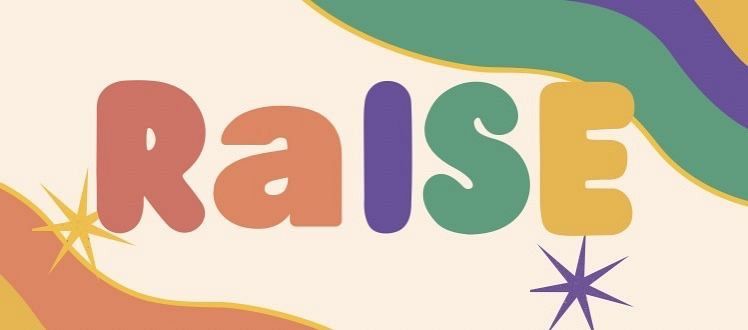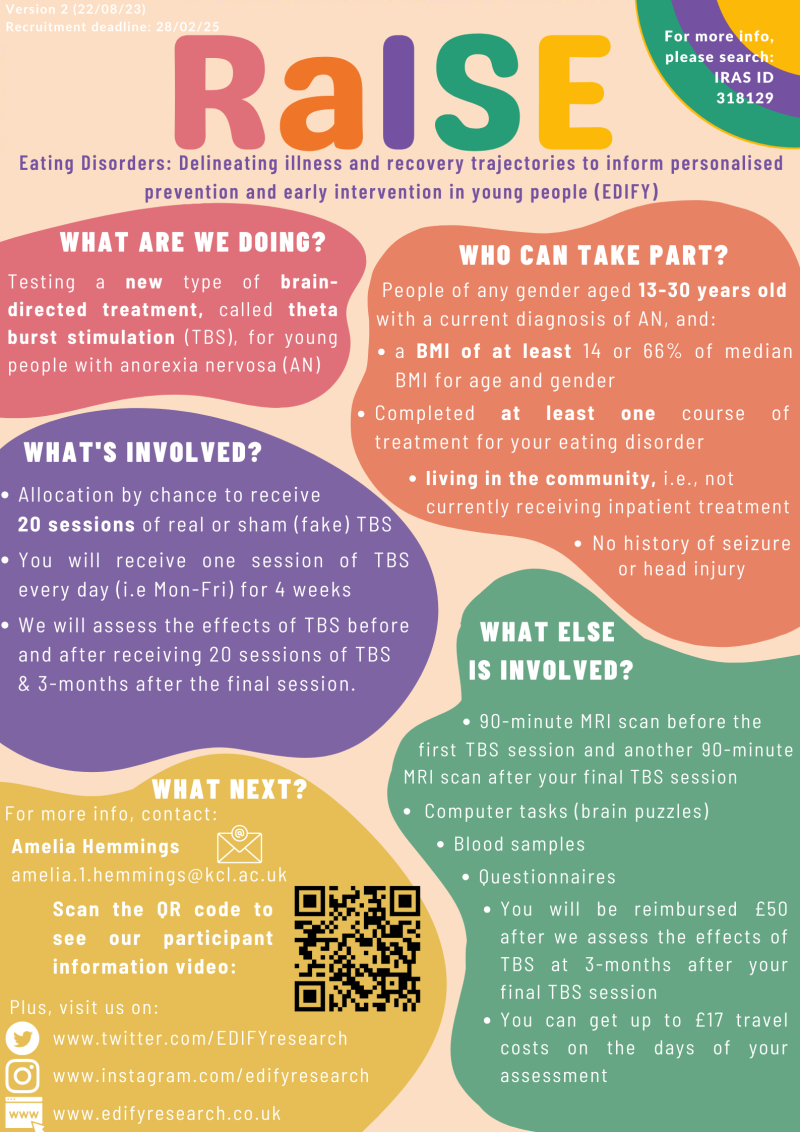The RaISE Trial: Non-invasive Neuromodulation for Young People with Anorexia Nervosa: OPENING RECRUITMENT NOW!
24/11/23
We are opening recruitment for the RaISE trial: A Randomised Controlled Feasibility trial of Intermittent Theta Burst Stimulation for Young People with Anorexia Nervosa
Many people with anorexia nervosa find talking therapy helpful in their journey to recovery. But the effectiveness of therapy can vary from person to person, and some people with anorexia don’t find talking therapies as helpful.
Research shows that certain areas of the brain function differently when a person has anorexia, which can affect how someone processes feelings and what they find rewarding, as well as their mood, impulses, and choices. If we target this area of the brain using neuromodulation (i.e., brain-directed treatment) this could be helpful for people who did not find talking therapy as useful. For example, when our research group conducted a study with adults who had long-standing anorexia, we found that neuromodulation had positive effects on mood and food choice flexibility, followed by longer-term improvements in weight and eating disorder symptoms.
Intermittent theta burst stimulation (iTBS) is one type of neuromodulation we believe could be helpful for young people with anorexia. During iTBS, we hold a magnetic coil over an area of the brain that functions differently when someone has anorexia. The coil produces a sequence of pulses for 4 minutes, and these pulses travel through the scalp to activate brain cells underneath. TBS has not yet been used with young people who have anorexia, but evidence shows it is safe and effective for treating depression in young people.
To investigate whether TBS is helpful for young people with anorexia, the RaISE study is recruiting participants to receive 20-sessions of real OR fake TBS over four weeks. We need to include a fake or “placebo” group because people sometimes show improvements even when they are given a fake treatment, which is called the placebo effect. By comparing people’s responses to the real TBS and to the fake TBS, we can see whether the real TBS is actually more effective than fake TBS. Those receiving the fake treatment will be offered a full course of the real iTBS after the study.
To be eligible to participate in RaISE, you must:
· Be aged between 13-30
· Have a diagnosis of anorexia nervosa
· Have undergone at least one full course of standard eating disorder treatment for anorexia nervosa, e.g., family-based therapy, in-patient treatment
· Have a BMI over 14 (for participants over the age of 18) or over 66% of the median BMI for age and gender (for participants under the age of 18)
· Have approval from your eating disorder clinician if you have one
· Use and understand English as a language for everyday conversation
To find out more, download our participant information sheets here:
Participant Information Sheet for Adults
Participant Information Sheet for Children and Adolescents
Participant Information Sheet for Parents / Carers
And contact one of our researchers to discuss the study further: amelia.1.hemmings@kcl.ac.uk
Keep updated by following our twitter @EDIFYresearch and Instagram @edifyresearch. If you have any questions, contact the research team at EDIFYresearch@kcl.ac.uk
This video was created in collaboration with four experts-by-experience, Isabel Jackson, and EDIFY youth advisors Isabella Malvisi, Katie McKenzie and Lucy Zocek.
Videography by Jack Stonebridge
http://www.jackstonebridge.com
Share


